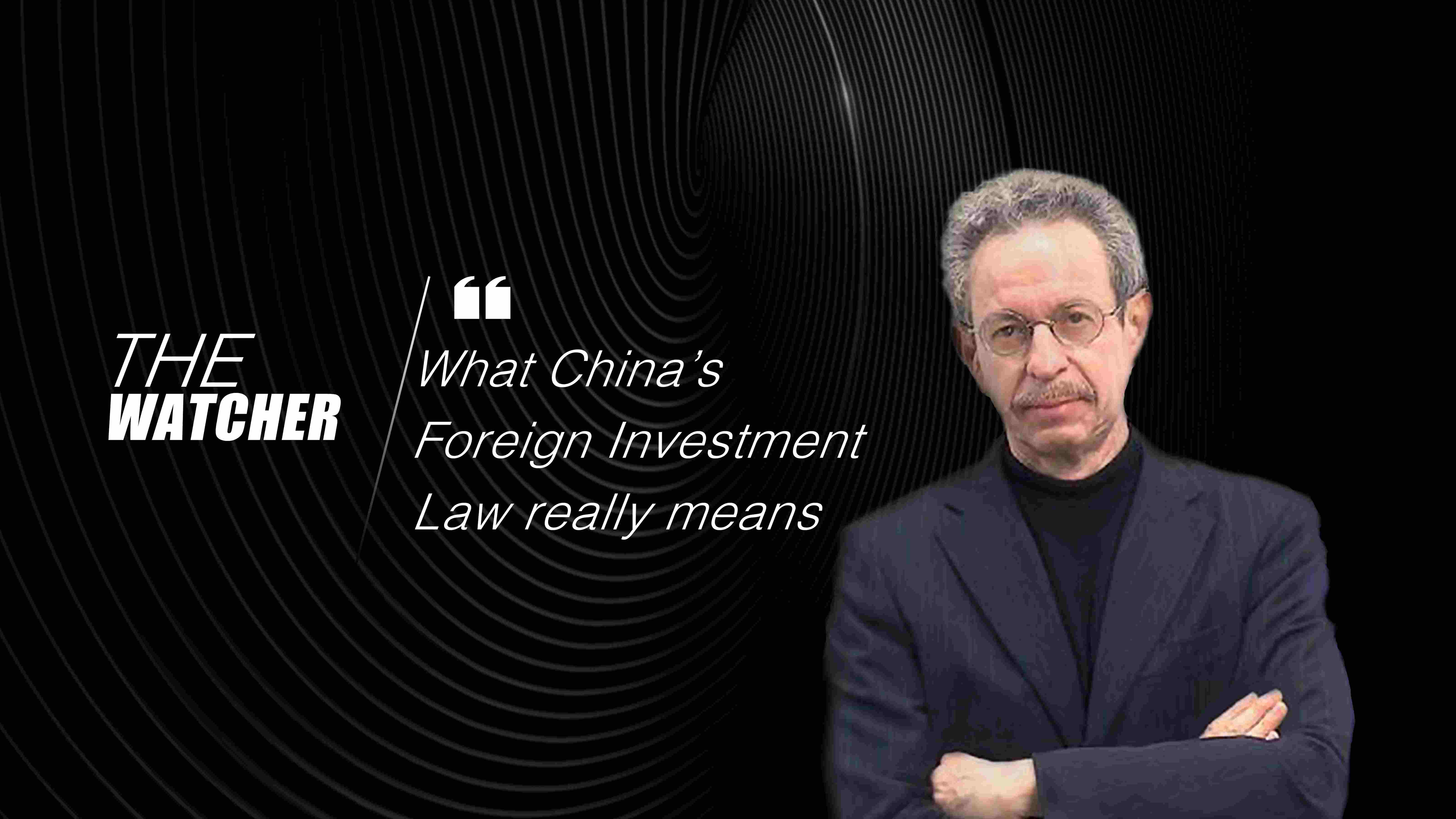
Opinion
10:07, 15-Mar-2019
What China's Foreign Investment Law really means
Updated
10:43, 15-Mar-2019
Robert Lawrence Kuhn
04:14

I'm Robert Lawrence Kuhn and here's what I'm watching: China's new Foreign Investment Law, backing up words with deeds. Foreign critics, quick to stress the Law's lack of specificity, should appreciate China's commitment and process.
China has become the champion of globalization, propounding the benefits of free trade, and by proposing to open up its own markets further and faster, China seeks to align its domestic policy with its international strategy.
Years in the making, China's Foreign Investment Law intends to facilitate foreign companies doing business in China, providing fair and equal market participation while at the same time enhancing market competition to benefit Chinese consumers – and here, frankly, foreign pressures can help to do, at least to some degree, what most Chinese economists want to do anyway.
Though specifics are yet to come, the Law intends to give foreign businesses broader market access, protect their intellectual property, prohibit forced technology transfer, and guarantee equal treatment (a “level playing field”) for foreign and domestic companies.
The draft Law consists of 41 articles in six sections, stressing investment promotion, protection, management, and legal responsibility. It stipulates that national and local governments make their foreign investment services more convenient, efficient and transparent.
The Law's prime objectives are to improve the openness, transparency and predictability of the investment environment for foreign investors. Yet there is concern among foreign media and business leaders about how the Law will be implemented and enforced.
The Law itself, in its current form, lacks required specificity – its 41 articles are down from 170 articles in the 2015 version (which was never passed); moreover, one-third of the 41 articles are a single sentence. Thus, there seems ample room for the Law's “flexible application” in the hands of bureaucrats, especially interest-group bureaucrats.
Given the current codification of the Law – including a proviso that complaints would be heard in Chinese courts – foreign concern is justified, but I look to a stronger force, which is why I choose to remain cautiously optimistic.
That stronger force is President Xi Jinping's deep commitment to promoting globalization and the fact that China's credibility as a champion of globalization will depend on the degree to which its domestic Foreign Investment Law is respected by the international business community.
That's why, in preparation for this year's Two Sessions, the legislative process was accelerated. In January 2017, at the World Economic Forum in Davos, President Xi gave perhaps the most meaningful, impassioned and well-received speech in defense of globalization, then under pressure, even attack, by U.S. President Donald Trump and other forces of populism and protectionism.
At the time, some foreign media criticized China for hypocrisy – “talking the talk” of globalization but not “walking the walk” of applying to themselves the same principles of open markets and free trade that they were preaching to others. I believe that President Xi is determined that China must continue to champion globalization, which is why China's Foreign Investment Law must be effective, and why, after it becomes the law of the land, foreign businesses must appreciate its change-making powers. Much is riding on the Foreign Investment Law. I'm keeping watch. I'm Robert Lawrence Kuhn.
(If you want to contribute and have specific expertise, please contact us at opinions@cgtn.com.)

SITEMAP
Copyright © 2018 CGTN. Beijing ICP prepared NO.16065310-3
Copyright © 2018 CGTN. Beijing ICP prepared NO.16065310-3